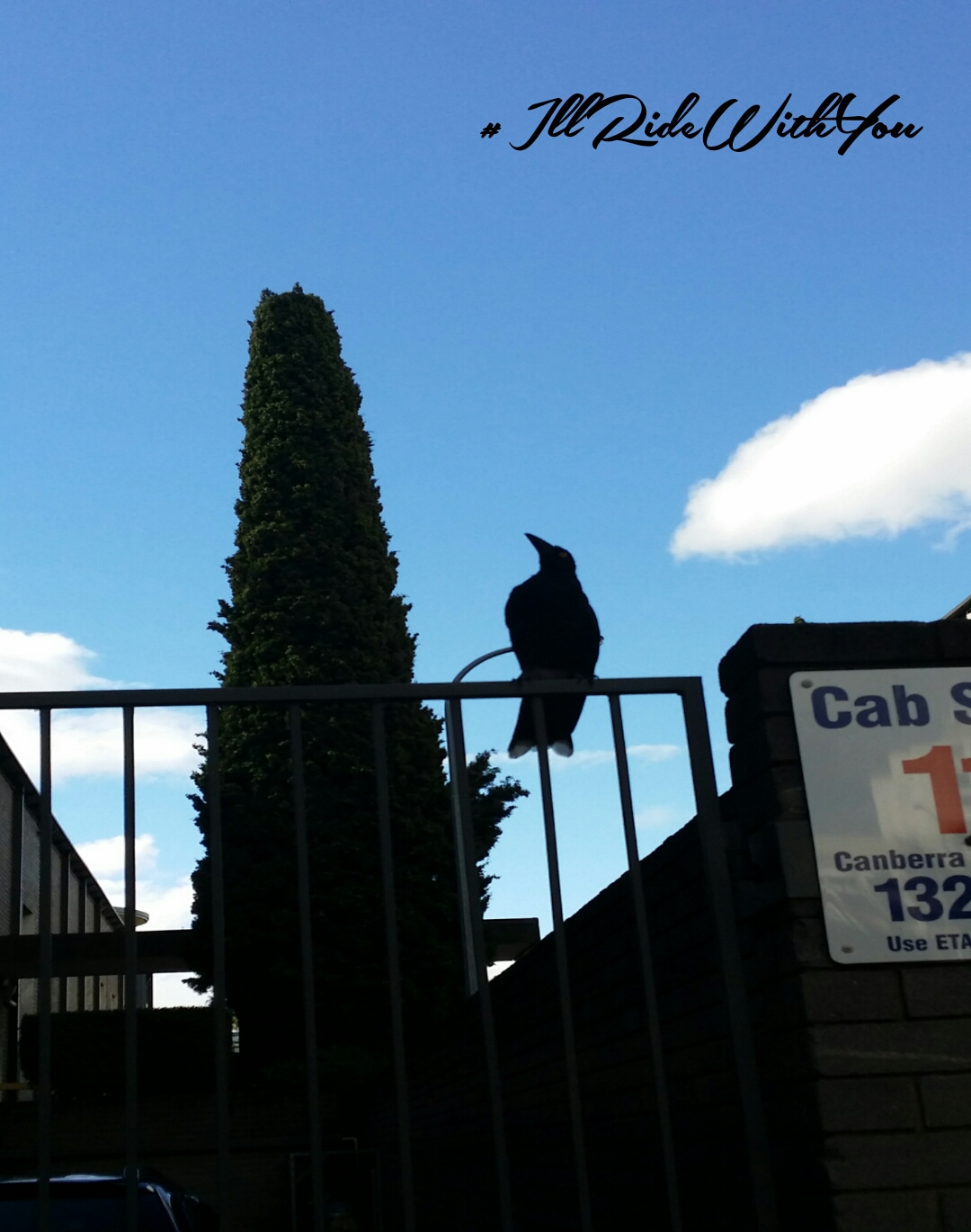 Tara Ashford, Canberra, Australia, SSH Blog Correspondent
Tara Ashford, Canberra, Australia, SSH Blog Correspondent
On 15 December 2014, Man Haron Monis held eighteen people hostage in the middle of the Sydney. During the siege he forced several of the hostages to hold up a black flag with the shahādah on it in white lettering. Knowing and seeing that Muslims, especially women who wear the hijab or other religious garb, would likely experience an increase in street harassment, Tessa Kum created the hashtag #IllRideWithYou to express solidarity and offer what assistance she could to people feeling vulnerable. It trended globally on Twitter and all my friends were talking about it.
When the hashtag took off, opinions varied as to just what effect the hashtag was having. I know many of the first articles I saw referring to it had glowing praise for this ‘lesson in how to respond to terrorism’. That link showcases tweets from a number of Muslim people expressing the reassurance they took from seeing the hashtag, and indeed here’s another from lawyer Mariam Veiszadeh that describes some of her own experience of being visibly Muslim during this tragedy. On this measure, #IllRideWithYou is surely a success – its originator set out to offer some modicum of comfort, and that is what at least some people received.
However, there has also been no shortage of criticism as attention to this hashtag grew. These have come from two opposing directions. First up, there have been a few conservative politicians and commentators who contend that street harassment of Muslim women is not something that happens, or at least not with any frequency, and as such #IllRideWithYou is unnecessary and offensive. But, this point is not debateable. We know that street harassment is a major problem. We know that Muslim women, in particular, are subject to street harassment. And we know that Australia is no magical safe haven from racist and sexist abuse.
More worthy of our attention is criticism from members of the Muslim community. They seek to remind us that there are huge, insidious, systemic issues at play here, and we haven’t even come close to addressing the prejudices and hate that lead to street harassment. Some people lumped these criticisms in with the first group as ‘haters’ who ‘aren’t helping’. But that’s a mistake. In amongst the pride and satisfaction of feeling like we have made a contribution, we need to be reminded that a hashtag is not enough. We need to join in with the conversation that demands more. I disagree with those who would call #IllRideWithYou hollow, but there is truth in the sentiment that this is not a solution. I think that’s okay though. Few people using the hashtag set out to solve street harassment and discrimination, and so long as we remember that there is still a big problem that needs solving, we can also take joy in having made a positive contribution to our community.
It is clear to me that #IllRideWithYou has had a positive impact on many people – making them feeling safer when the tide of misogyny and islamophobia would have them forced out of public spaces with a million micro- and not so micro-aggressions. But the other step we need to take when we look back on this phenomenon, a truly vital step, is to consider the costs. There has been suggestion that some, in their ill-thought-out attempts to help, may approach people in public and put inappropriate pressure on them to ride together. In such an ungoverned and impromptu movement this seems inevitable to me, and creating a different kind of street harassment is certainly a cost. Likewise, in the link above, Tessa Kum has spoken about the overwhelming demands for interviews and massive amounts of aggressive harassment that people have directed at her after her coining of the hashtag. This personal cost has not changed her mind about the necessity of expressing compassion and solidarity in the way that she did, but it too is an important consideration for us when looking at the ongoing effects of #IllRideWithYou. Doubtless that strain will be with her longer than a fleeting hashtag.
This was not a huge organised campaign against street harassment and bigotry. In the scheme of things, a hashtag is just a small gesture. But small can still be valuable. If we have learnt one thing from street harassment, it’s that one interaction can flavour an entire day. It is my belief that #IllRideWithYou won’t continue as a massive movement for change, it won’t be a singular triumph in the history of Australian race relations or gender equality. But for at least a few days, people around Australia had days that tasted of solidarity and support. In France, where the recent attack on the Charlie Hebdo headquarters left journalists and cartoonists dead and communities growing more divided, #VoyageAvecMoi appeared briefly, although to much less fanfare and uptake. Strangers supporting each other is not new. If we take the time to shoulder part of the burden, we can make sure that the respect and compassion of strangers continues to be a roadblock to public hatred and street harassment.
Tara works with AWAVA (the Australian Women Against Violence Alliance) indulging her love of social media. You can find her on Twitter as @angelbird72 or @Tash_Because or being silly as one half of the ‘slice-of-life’ podcast Heaps Funny But.
